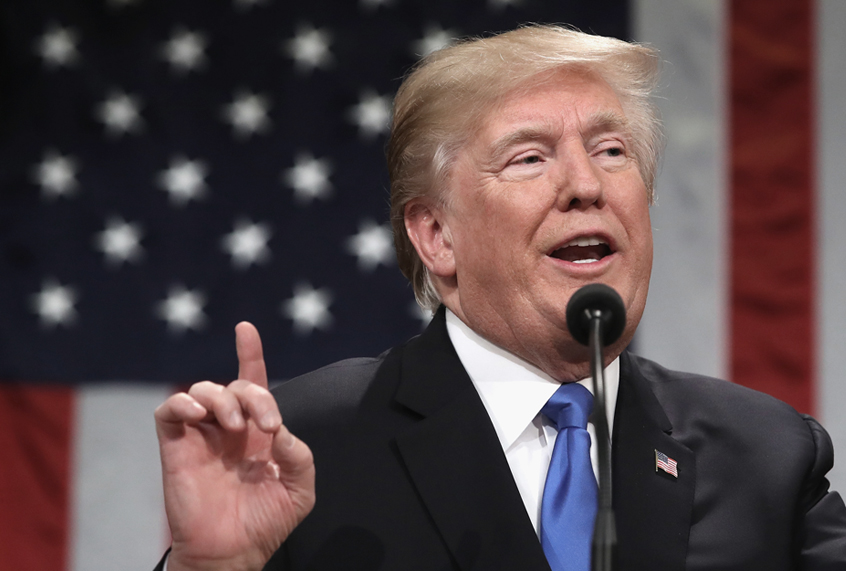President Donald Trump has always been a man who’s concerned with ratings, and anything ever done by his predecessor. So when the poll numbers aren’t on his side, he has to bend them in his favor and make sure dissenters know that any opposition will be deemed as “fake news.”
On Sunday morning the president claimed in a tweet that a Rasmussen poll “and others” had his approval rating “at around 50% which is higher than Obama” but his numbers were a bit off. He also told viewers to “turn off” any programs that broadcast numbers that tell a different story.
Rasmussen and others have my approval ratings at around 50%, which is higher than Obama, and yet the political pundits love saying my approval ratings are “somewhat low.” They know they are lying when they say it. Turn off the show – FAKE NEWS!
— Donald J. Trump (@realDonaldTrump) March 11, 2018
Polling data shows that between the dates Feb. 26, and March 8, Trump’s average approval rating was 40.9 percent, according to RealClearPolitics. The most recent Rasmussen poll only had the president’s approval rating at 44 percent, which differed from his claim that it was “around 50%.” Rasmussen polls have a history of leaning in the favor of Republicans, and it’s a poll Trump has routinely cited, while he’s downplayed the results of others.
Not one other poll, which included Marist, Economist/YouGov, Quinnipiac University, Monmouth University, Reuters/Ipsos and Gallup, had a higher number for Trump’s approval rating. Only Marist tied Rasmussen at 44 percent.
At the same point in former President Barack Obama’s time in office, Rasmussen listed his approval rating at 44 percent as well, Axios noted. The lowest approval rating for Obama came in December 2013 at just 39.8 percent, however, his average of 48 percent over 8 years is still higher than Trump’s.
While Trump’s numbers have experienced a slight upswing in recent weeks he’s still substantially less popular than Obama at the current moment. Obama holds an approval rating of 57.2 percent that has, for the most part, continued to rise since he has left office, something that could be seen as a consequence of Trump’s election.
Regardless, a sitting president continuing to exhibit neurotic concern over ratings is still quite unprecedented. On the campaign trail Trump brushed off polling as being fabricated, but has since touted any numbers that he has deemed to be beneficial to him. He has acted similarly about stock market gains, only to disappear when it experiences a dip. His remarks could be seen as a merge between personal insecurity and authoritarian tendencies.
To top it all off, Trump ended his tweet with his favorite catchphrase “fake news” even though he was the one to spread deliberately misleading claims. No wonder Trump supporters are the most likely promulgators of “junk” news on the internet.


